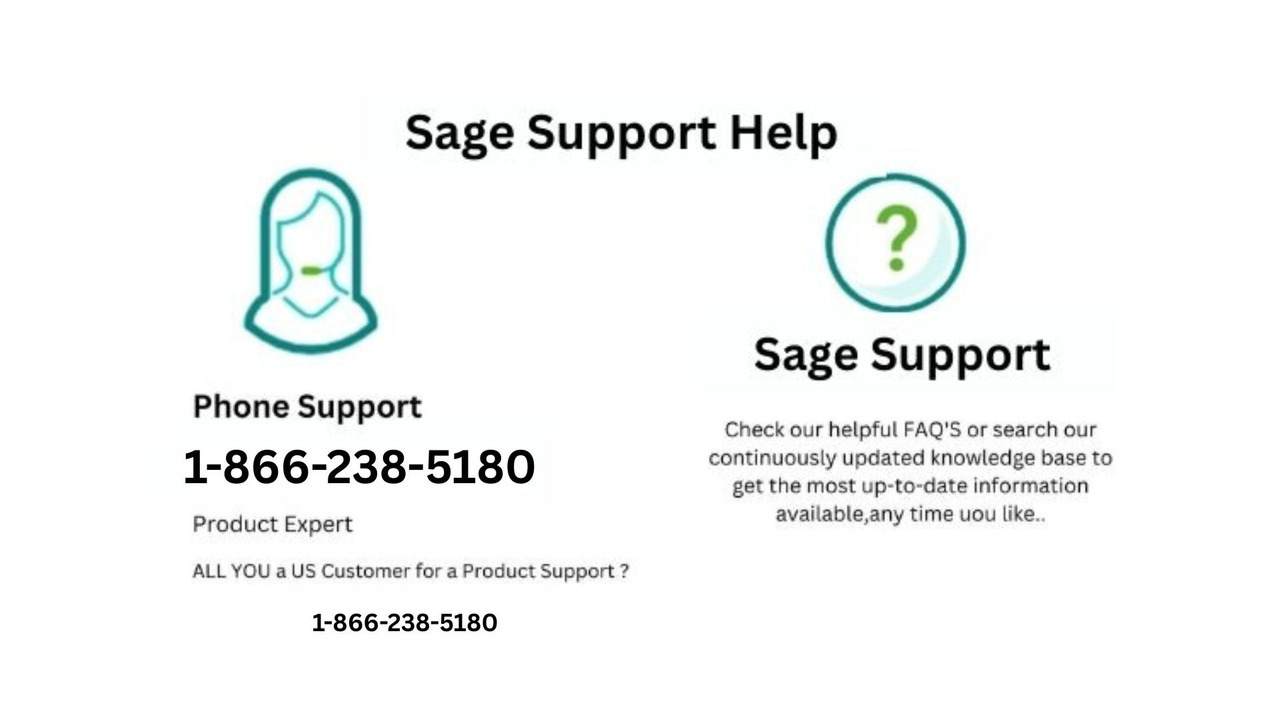If you’re trying to install your Sage accounting software and suddenly run into Error 1628: Failed to Complete Installation, you’re not alone. This error is common among users installing Sage 50, Sage 100, or Sage 300 on Windows systems. It typically appears when the InstallShield process is interrupted, blocked, or corrupted.
The good news is that this issue is usually fixable without needing to be a tech expert. In this blog, we’ll walk you through the step-by-step process to fix Sage Install Error 1628 and get your software up and running smoothly. And if you’d rather have a professional guide you through it, you can always call 1-866-238-5180 for immediate expert support.
What Is Sage Install Error 1628?
Error 1628 is an InstallShield error that occurs when Sage installation fails to complete. It typically indicates that the installation script could not be executed properly due to a conflict, missing file, or permissions issue.
This error can appear when:
- You're installing Sage for the first time
- You're upgrading Sage to a newer version
- A previous installation didn’t complete successfully
- Temporary files or InstallShield components are corrupted

Step-by-Step Guide to Fix Error 1628
Follow these methods one by one to troubleshoot and fix the problem.
Step 1: Restart Your Computer
Before trying anything complicated, restart your computer. This clears any locked files or background processes that might be interfering with the installation.
Step 2: Run the Installer as Administrator
Sage installations often need elevated permissions. To do this:
- Right-click on the Sage installer file.
- Select “Run as administrator.”
This gives the installer access to required system files and reduces the chance of permission-related errors.
Step 3: Delete Temporary Files
Corrupted temp files can cause Error 1628. Clean them out with the following steps:
- Press Windows + R to open the Run box.
- Type %temp% and press Enter.
- Delete all files in the folder.
- Repeat the process with temp (without the % symbols).
This helps clear old or failed installation remnants.
Step 4: Close Background Applications
Running programs like antivirus software, browser windows, or previous versions of Sage can interfere with the installation process.
- Press Ctrl + Shift + Esc to open Task Manager.
- End tasks related to security software or previously installed Sage apps.
- Then reattempt the installation.
Step 5: Remove Corrupted InstallShield Files
A corrupt InstallShield component is a major cause of Error 1628.
- Go to:
- C:\Program Files (x86)\Common Files\InstallShield\Professional\RunTime
- Rename the folder to something like RunTime_old, or delete it entirely.
- Restart your computer.
- Run the Sage installer again.
This forces Windows to rebuild fresh InstallShield files when the installation begins.
Step 6: Update Windows
An outdated operating system or Windows Installer can block installations.
- Go to Settings > Windows Update
- Install any available updates
- Restart your system
Also, ensure your .NET Framework and Windows Installer Service are updated and enabled.
Step 7: Disable Antivirus and Firewall Temporarily
Sometimes your security software may mistakenly block parts of the Sage installer. To check:
- Temporarily disable antivirus and firewall tools.
- Run the installer.
- Once installed, re-enable your protection software immediately.
Important: Only disable protection if you are installing Sage from a trusted, official source.
Step 8: Use Compatibility Mode
If you’re installing an older version of Sage on a newer Windows version, try compatibility mode:
- Right-click the Sage installer file.
- Select Properties > Compatibility tab.
- Check “Run this program in compatibility mode for:”
- Select Windows 7 or another earlier version.
- Apply changes and re-run the installer.
Step 9: Use the Microsoft Install Troubleshooter
Microsoft provides a free tool that fixes common install and uninstall issues:
- Search “Program Install and Uninstall Troubleshooter Microsoft”
- Download and run the tool
- Follow the on-screen steps to detect and fix the issue
Still Need Help? Call 1-866-238-5180 for Expert Support
If you’ve tried all the steps above and still can’t get past Sage Install Error 1628, it may be time to get expert assistance.
Call 1-866-238-5180 to speak directly with a Sage support specialist. The team can:
- Diagnose complex issues with your Sage installation
- Help you safely clean your system of failed installations
- Walk you through advanced fixes in real-time
- Offer remote assistance if needed
- Ensure Sage is installed correctly without data loss
Whether you're installing Sage 50, Sage 100, or Sage 300, this toll-free number connects you to people who know Sage inside and out.
Bonus Tips to Avoid Future Installation Errors
- Always install software from official or trusted sources
- Run installations as an administrator
- Keep your system and Windows Installer updated
- Avoid interrupting installations (no shutdowns or restarts mid-install)
- Regularly clear out your temp files and old install folders

Final Thoughts
Sage Install Error 1628 is a common but fixable issue. It often stems from corrupted InstallShield files, permission issues, or background interference. By following the steps in this guide, most users are able to resolve the error and complete their installation successfully.
However, if the problem persists or if you’re uncomfortable with technical troubleshooting, the best course of action is to contact a professional.
📞 Call 1-866-238-5180 today to get immediate help from Sage experts who can get you back on track—whether you’re a small business owner, accountant, or enterprise user.
Don’t let one installation error delay your operations. Let the pros handle it for you.
